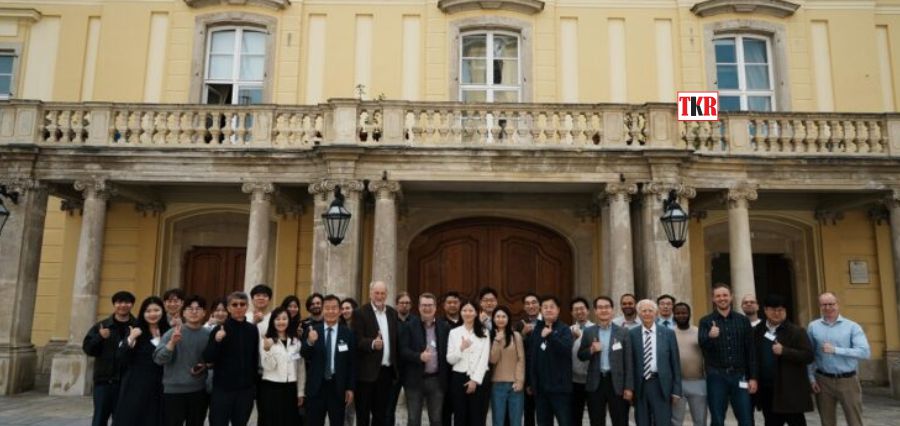On Monday, April 15, at IIASA’s headquarters in Laxenburg, Austria, the OJEong Resilience Institute (OJERI) and the International Institute for Applied Systems Analysis (IIASA) together convened the KU-IIASA Symposium 2024.
OJERI’s research orientation is aligned with the symposium’s theme, “Towards integrated approaches for modeling ecosystem material cycles and climate crisis-related disturbances.” OJERI has been performing basic science research on ecosystem material cycles in response to climate and environmental crises since it was recognized as an Autonomous Core Research Institute by the National Research Foundation of Korea.
Presentations and conversations at the first session centered on the material cycles of ecosystems, with an emphasis on agricultural and forest ecosystems. OJERI researchers presented integrated modeling approaches under development in partnership with IIASA, as well as the Ko-G-Dynamics model, a novel methodology created in South Korea. Internationally utilized models, such as FLAM for forest fires, EPIC for agriculture, and G4M for forestry, were introduced by IIASA researchers.
Insights into potential future research collaboration between OJERI and IIASA to address environmental and climate crises were provided in the second session. IIASA released a number of novel analytical systems intended to solve the crises, while OJERI provided an introduction of integrated modelling methodologies for ecosystems and an overview of ecosystem material cycles.
The management of ecological disturbances like forest fires, integrated models for assessing climate change, and the investigation of carbon capture and bioenergy were the main topics of discussion.
The meeting also revealed new areas of cooperation research, such as climate and environmental projects centered on the mid-latitudes and research on the Third Pole, which entails in-depth investigations of Asia’s highlands. Young scientists, mostly students in general graduate programs in the Department of Environmental Science and Ecological Engineering, also gave a number of talks.
Numerous study avenues were suggested by Professor Cho Ki-jong of the Division of Environmental Science and Ecological Engineering, who emphasized the need of carrying out an integrated investigation of the processes of organism adaptation and evolution within ecosystem material cycles. Dr. Song Young-il from the Korea Environment Institute, who was also a panelist, emphasized the vital need of cooperation between the two organizations in order to achieve integrated modeling and create future adaptation plans to address the environmental and climate crises that South Korea’s vital ecosystems, like agriculture and forests, are facing.
OJERI and IIASA will strengthen their comprehensive scientific collaboration by signing an MOU, starting with this event. OJERI Director Lee Woo-kyun stated, “As we’ve explored in this symposium, the disruption to ecosystem material cycles by environmental and climate crises represents a serious challenge. It’s imperative that we formulate a collaborative international response to these issues.” He further noted, “Through our partnership with IIASA, we aim to explore avenues for advancing academic research and delivering practical societal benefits through scientific study.”
Read More: https://theknowledgereview.com/









